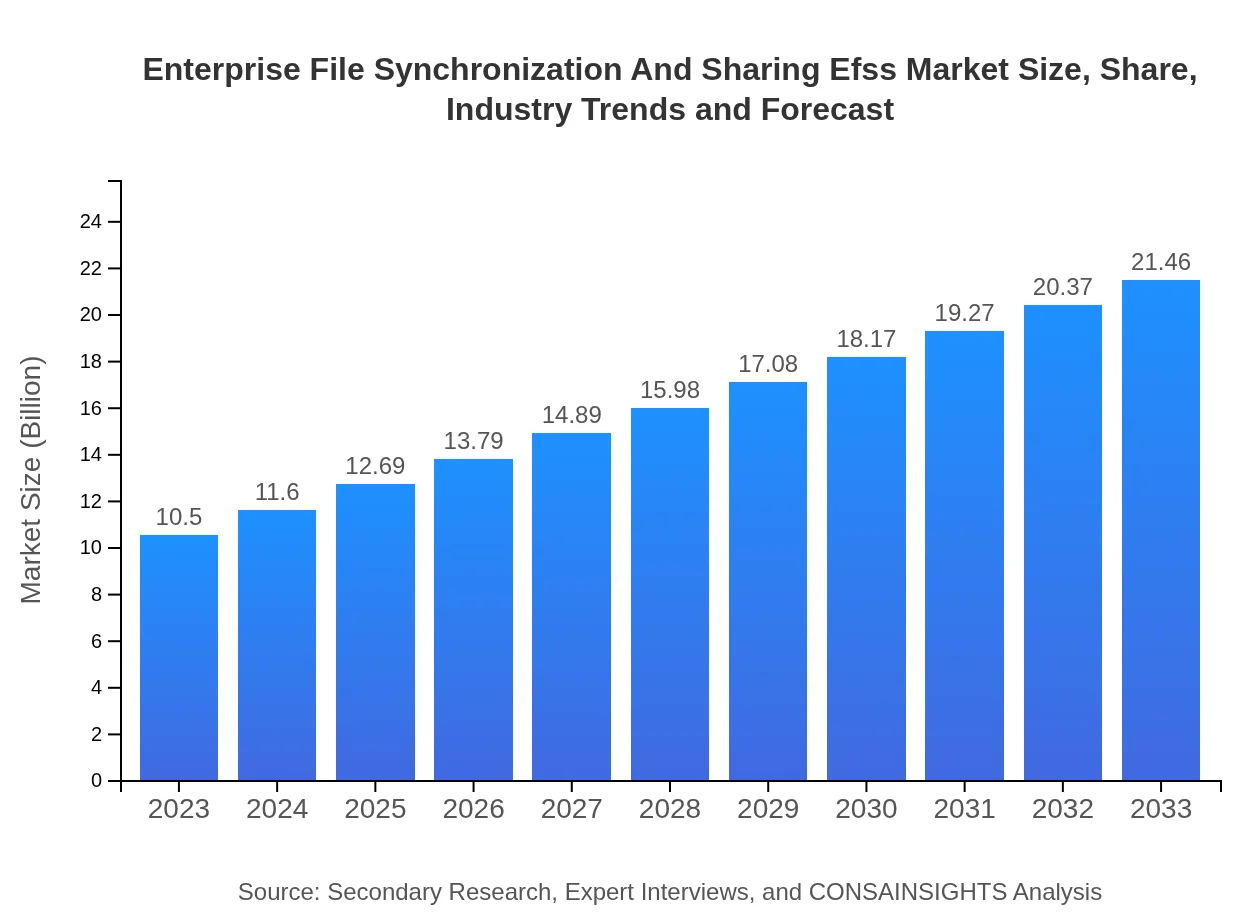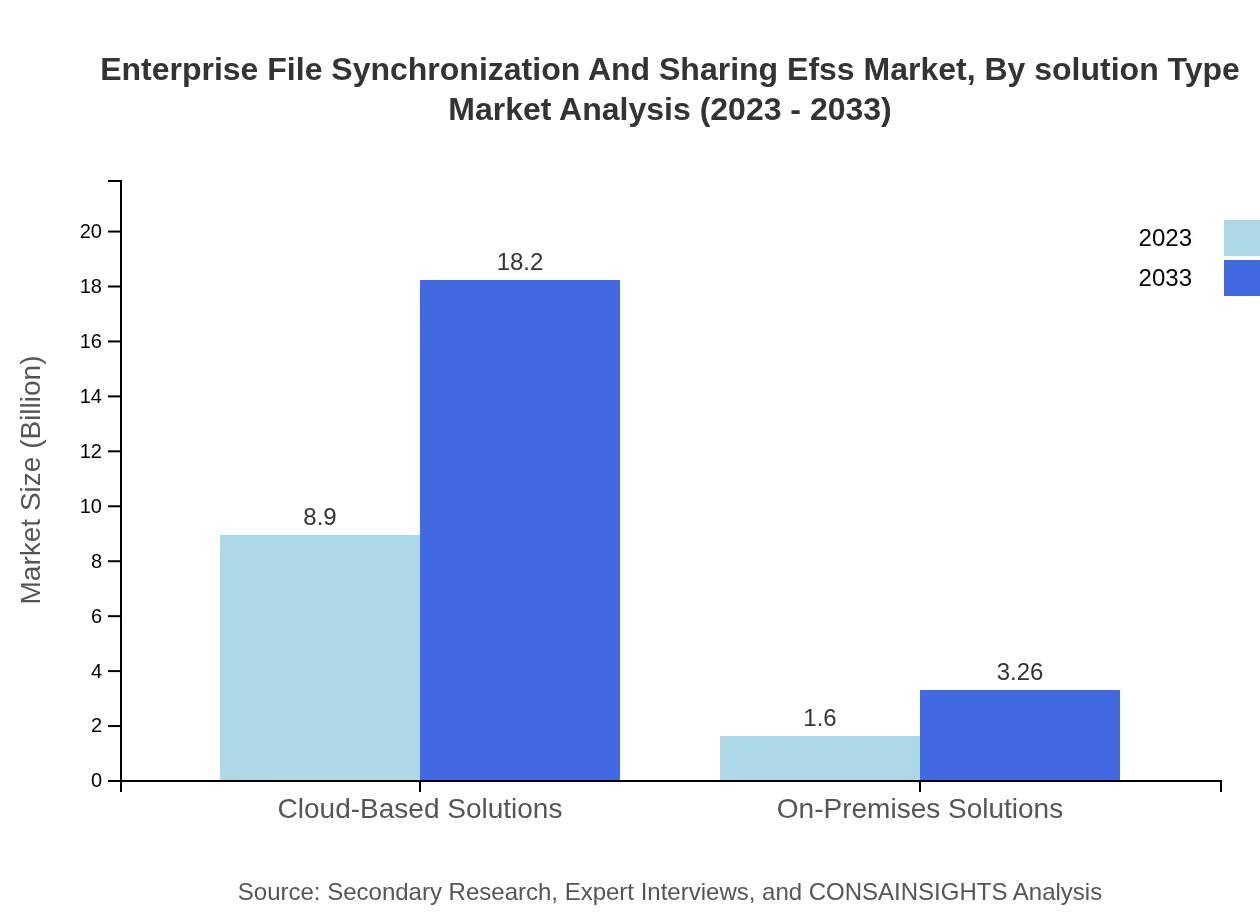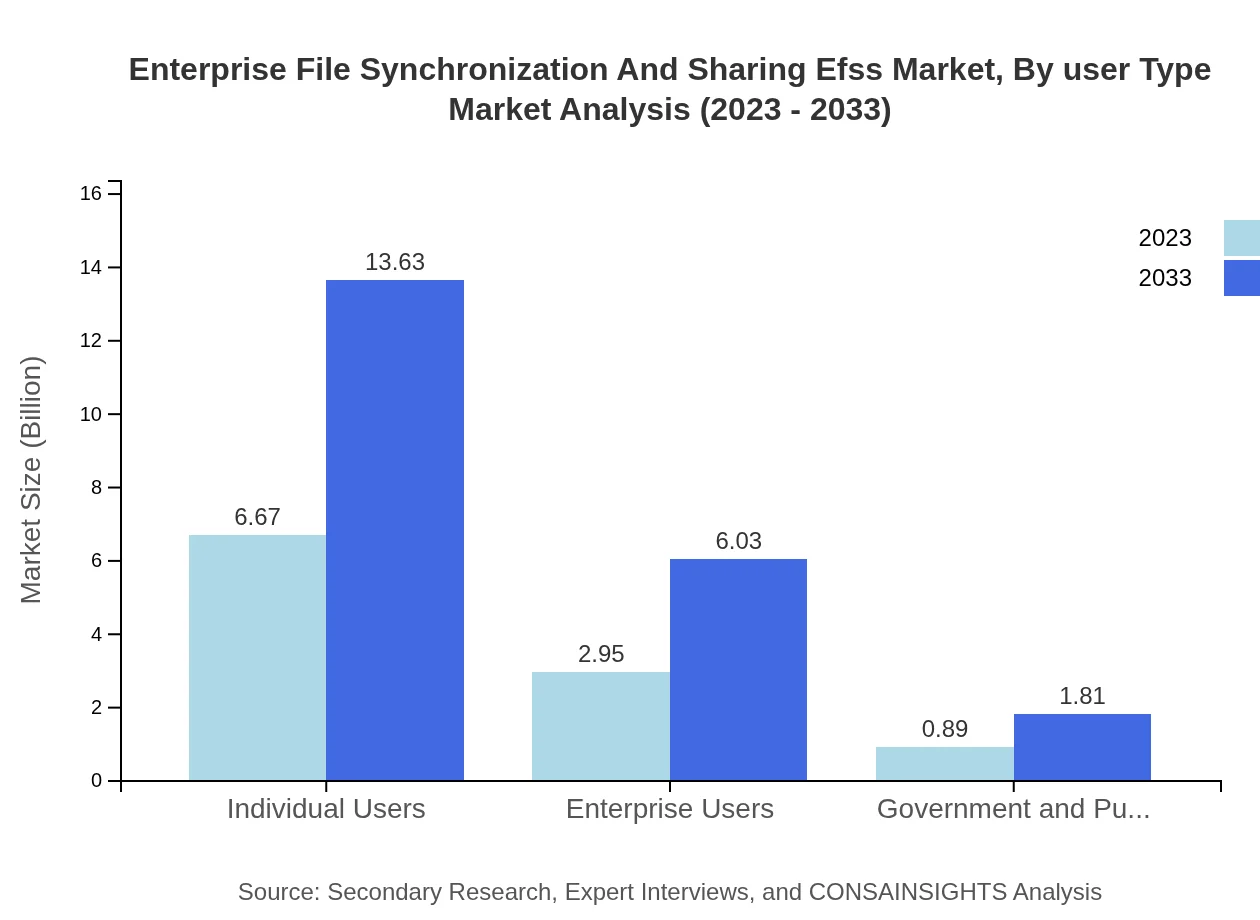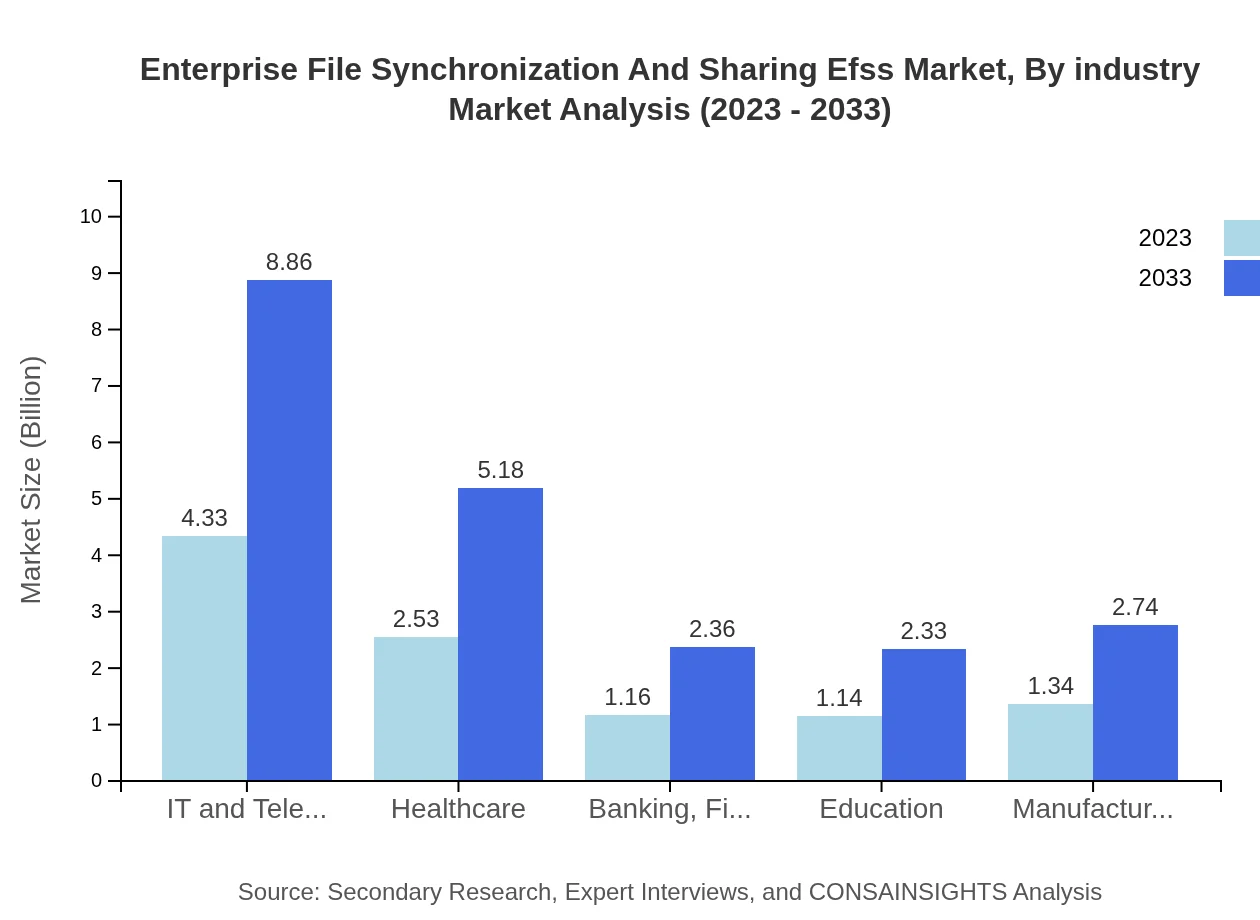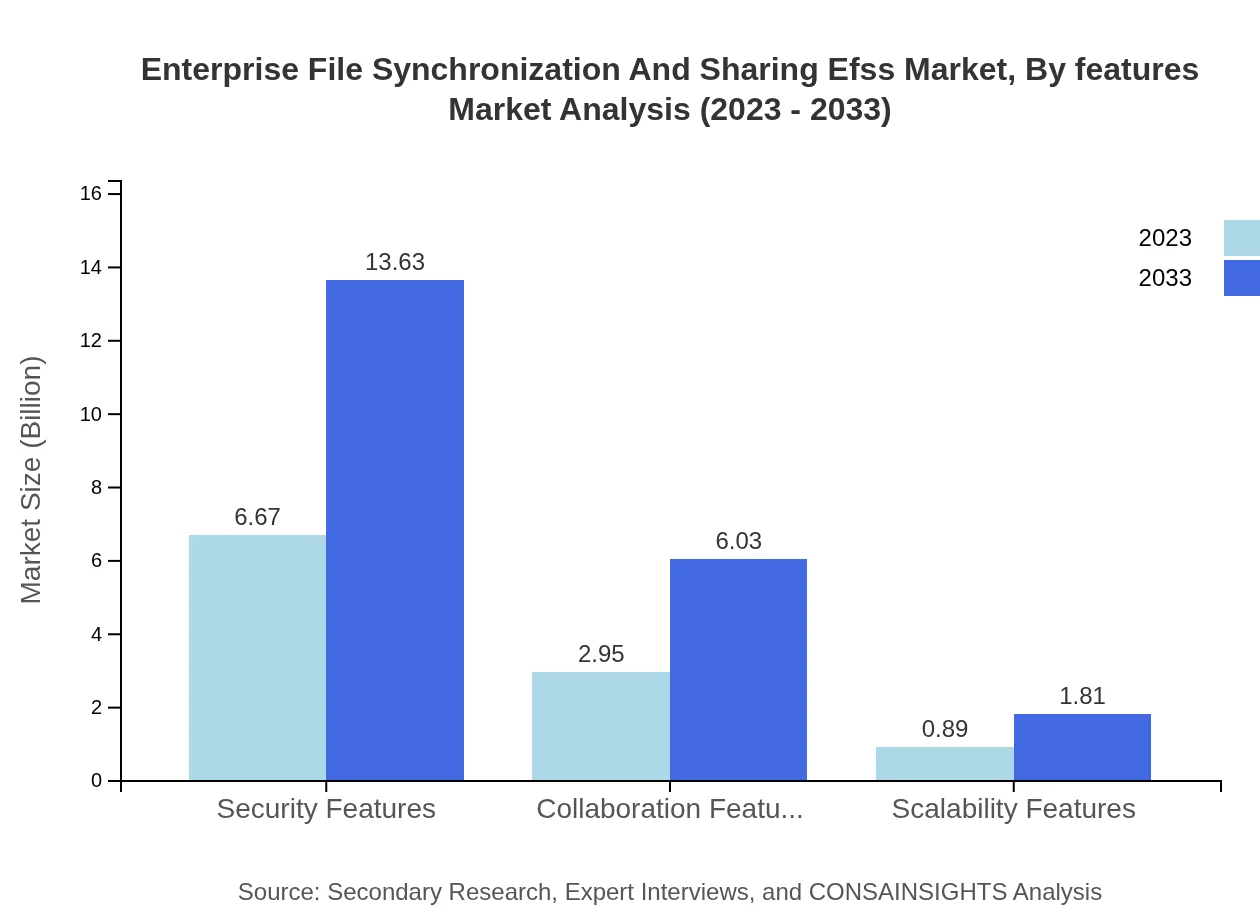Enterprise File Synchronization And Sharing Efss Market Report
Published Date: 31 January 2026 | Report Code: enterprise-file-synchronization-and-sharing-efss
Enterprise File Synchronization And Sharing Efss Market Size, Share, Industry Trends and Forecast to 2033
This report analyzes the Enterprise File Synchronization and Sharing (EFSS) market, providing insights into market trends, size, competitive landscape, and forecasts from 2023 to 2033, equipping stakeholders with vital information for strategic decision-making.
| Metric | Value |
|---|---|
| Study Period | 2023 - 2033 |
| 2023 Market Size | $10.50 Billion |
| CAGR (2023-2033) | 7.2% |
| 2033 Market Size | $21.46 Billion |
| Top Companies | Microsoft, Box, Dropbox, Google, IBM |
| Last Modified Date | 31 January 2026 |
Enterprise File Synchronization And Sharing Efss Market Overview
Customize Enterprise File Synchronization And Sharing Efss Market Report market research report
- ✔ Get in-depth analysis of Enterprise File Synchronization And Sharing Efss market size, growth, and forecasts.
- ✔ Understand Enterprise File Synchronization And Sharing Efss's regional dynamics and industry-specific trends.
- ✔ Identify potential applications, end-user demand, and growth segments in Enterprise File Synchronization And Sharing Efss
What is the Market Size & CAGR of Enterprise File Synchronization And Sharing Efss market in 2023?
Enterprise File Synchronization And Sharing Efss Industry Analysis
Enterprise File Synchronization And Sharing Efss Market Segmentation and Scope
Tell us your focus area and get a customized research report.
Enterprise File Synchronization And Sharing Efss Market Analysis Report by Region
Europe Enterprise File Synchronization And Sharing Efss Market Report:
The European EFSS market is expected to escalate from $2.53 billion in 2023 to $5.16 billion by 2033. Regulatory compliance and data protection concerns are propelling organizations to adopt advanced EFSS solutions, ensuring secure file sharing.Asia Pacific Enterprise File Synchronization And Sharing Efss Market Report:
The Asia Pacific region is expected to exhibit significant growth, with the market anticipated to rise from $2.12 billion in 2023 to $4.34 billion in 2033. Factors such as increased smartphone penetration and expanding internet access are boosting demand for EFSS solutions in various sectors, including education and manufacturing.North America Enterprise File Synchronization And Sharing Efss Market Report:
North America dominates the EFSS market, projected to increase from $3.48 billion in 2023 to $7.10 billion by 2033. The presence of tech giants and a robust demand for secure collaboration tools in enterprises elevates the region's standing as a market leader.South America Enterprise File Synchronization And Sharing Efss Market Report:
The South American EFSS market, though smaller, displays a promising trajectory, projected to grow from $0.94 billion in 2023 to $1.92 billion by 2033. The adoption of digital tools among businesses striving for operational efficiency is a pivotal driver of growth in this region.Middle East & Africa Enterprise File Synchronization And Sharing Efss Market Report:
In the Middle East and Africa, the EFSS market is set to grow from $1.44 billion in 2023 to $2.94 billion by 2033. The region’s evolving digital landscape, supported by government initiatives to enhance cybersecurity, will drive the demand for EFSS solutions.Tell us your focus area and get a customized research report.
Enterprise File Synchronization And Sharing Efss Market Analysis By Solution Type
The cloud-based EFSS segment dominates, holding an extensive market share of 84.79% in 2023 with a size of $8.90 billion projected to reach $18.20 billion by 2033. Conversely, on-premises solutions are less favored due to higher initial costs and maintenance requirements, holding a market share of 15.21%.
Enterprise File Synchronization And Sharing Efss Market Analysis By Deployment Model
The public cloud segment represents the largest share of the market, comprising 63.49% in 2023. It is anticipated to grow from $6.67 billion to $13.63 billion by 2033. Private and hybrid cloud segments also show promise but represent smaller shares due to specific organizational needs and security concerns.
Enterprise File Synchronization And Sharing Efss Market Analysis By User Type
In terms of user type, individual users command a significant share of the market at 63.49%, with a size of $6.67 billion in 2023. Enterprise users are also a critical segment, expected to grow from $2.95 billion in 2023 to $6.03 billion by 2033.
Enterprise File Synchronization And Sharing Efss Market Analysis By Industry
IT and Telecom lead the industry segmentation, holding 41.27% market share in 2023. Key segments like healthcare and banking are also significant, fueled by stringent compliance requirements and the need for secure data sharing.
Enterprise File Synchronization And Sharing Efss Market Analysis By Features
Security features are paramount, expected to grow from $6.67 billion in 2023 to $13.63 billion by 2033. Collaborative features are also essential, driven by the need for teamwork in remote environments, growing from $2.95 billion to $6.03 billion in the same period.
Enterprise File Synchronization And Sharing Efss Market Trends and Future Forecast
Tell us your focus area and get a customized research report.
Global Market Leaders and Top Companies in Enterprise File Synchronization And Sharing Efss Industry
Microsoft:
A frontend leader in cloud services, recognized for its OneDrive solution that integrates with Office 365, promoting secure file sharing and collaboration.Box:
Known for its enterprise cloud content management services, Box emphasizes security and compliance in its solutions, catering to diverse industry needs.Dropbox:
Offering robust file storage and collaboration features, Dropbox serves both individual and enterprise users, focusing on user experience.Google:
With its Google Drive and G Suite offerings, Google provides extensive collaboration tools integrated with various digital solutions.IBM:
IBM's Cloud Object Storage facilitates secure file syncing and sharing, particularly for enterprises looking for heavy-duty compliance.We're grateful to work with incredible clients.









FAQs
What is the market size of enterprise file synchronization and sharing (EFSS)?
The global EFSS market is projected to grow from $10.5 billion in 2023 to larger scales by 2033, with a CAGR of 7.2%. This significant growth reflects the increasing need for efficient file management solutions in various sectors.
What are the key market players or companies in the EFSS industry?
Key players in the EFSS industry include Box, Dropbox, Citrix, Microsoft, and Google. These companies provide diverse solutions tailored for various industries, enhancing secure and efficient file synchronization and sharing.
What are the primary factors driving the growth in the EFSS industry?
Key growth drivers include increasing remote work trends, the need for data security, rising cloud adoption, and the demand for collaborative tools. These factors collectively enhance the appeal of EFSS solutions across industries.
Which region is the fastest Growing in the EFSS market?
The fastest-growing region in the EFSS market is North America, projected to grow from $3.48 billion in 2023 to $7.10 billion by 2033. The region's focus on technology and cloud integration drives this growth.
Does ConsaInsights provide customized market report data for the EFSS industry?
Yes, ConsaInsights offers customized market research reports tailored to client needs, providing targeted insights and data on the EFSS industry to aid strategic business decisions.
What deliverables can I expect from this EFSS market research project?
Deliverables include comprehensive market analysis reports, competitor profiling, growth forecasts, regional market insights, and detailed segment analysis, empowering clients with actionable intelligence.
What are the market trends of EFSS?
Trends include increasing adoption of cloud solutions, enhanced security features, collaborative tools, and a shift towards hybrid and private cloud environments as businesses prioritize flexibility and security in file management.

